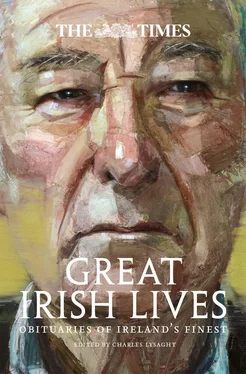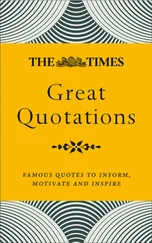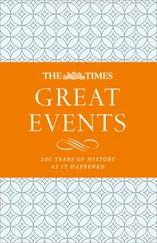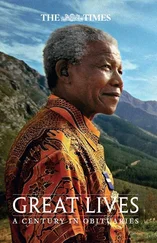The issue of the contest left Mr Gladstone’s forces just balanced by those of the Conservatives and Parnellites combined. He at once resolved to secure the latter by an offer of Home Rule, though he had up to that time professed his devotion to the Union, and though nine-tenths of his followers had pledged themselves to it. His overtures were, of course, welcomed, though without a too trustful effusiveness, by Mr Parnell; the Conservative Government was overthrown on a side issue; Mr Gladstone came into power and introduced his Home Rule Bill. Much was made of Mr Parnell’s unqualified acceptance of that measure. It now appears that he objected to several points in it, being, no doubt, aware of the view taken of it by his American allies, but he did not press his objections, fearing, as he said since, that the insistence on further concessions would deprive Mr Gladstone of other colleagues and break up the Government. Mr Parnell’s temporary forbearance, which had no element of finality in it, did not save the Bill. In the Parliament of 1886 his numerical forces were nearly the same as those he previously commanded, but he was now allied with a greatly enfeebled Gladstonian Opposition. It was necessary to affect the most scrupulous constitutionalism, and for a time Mr Parnell played the part well. The Irish-Americans took the cue from him, and were willing to wait. Dynamite outrages had ceased. But the necessities of the case urged him to insist on reopening the Irish land question, and in Ireland the National League continued to work on the old system. Boycotting and its attendant incidents increased, and, during Mr Parnell’s temporary withdrawal from active politics, Mr Dillon and Mr O’Brien committed the party to the Plan of Campaign, which involved a pitched battle with the Executive and the law. The introduction of the Crimes Bill was the direct result of this policy, which Mr Parnell privately condemned. His opposition to the Bill was of the familiar kind. But the tactics of obstruction which were then pursued were overshadowed in the public eye by the controversy on “Parnellism and Crime” that arose in our own columns. Seeing that the alliance between Mr Parnell and the Gladstonian Opposition was growing closer and closer, that it was employed to obstruct the Executive Government and to set at naught the law, and that the success of Home Rule would deliver over Ireland to a faction tainted by association with Ford and Sheridan, we thought it right to call public attention to some salient episodes in Mr Parnell’s career and to draw certain inferences from them. We also conceived it to be our duty to publish some documentary evidence that came into our hands, of the authenticity of which we were honestly convinced, and which seemed to us perfectly consistent with what was proved and notorious. Mr Parnell gave a comprehensive denial to all our charges and inferences, including the alleged letter apologizing to some extremist ally for denouncing the Phoenix Park murders in the House of Commons. He did not, however, accept our challenge or bring an action against The Times , nor was it till more than a year later, after Mr O’Donnell had raised the question by some futile proceedings, that he demanded a Parliamentary inquiry into the statements made on our behalf by the Attorney-General. We need not here recite the story of the appointment of the Special Commission and its result. The evidence of Richard Pigott broke down, and with it the letters on which we had in part relied, and Mr Parnell’s political allies claimed for him a complete acquittal. But the Report of the Commissioners showed that, though some other charges against Mr Parnell were dismissed as unproved, the most important contentions of The Times were fully established. The origin and objects of the criminal conspiracy were placed beyond doubt; the association for the purposes of that conspiracy with the Irish-American revolutionists was most clearly made manifest, as well as the reckless persistence in boycotting and in the circulation of inflammatory writings after it was known in what those practices ended. Nor was it without significance that a confession was extorted from Mr Parnell that he might very possibly have made a deliberately false statement for the purpose of deceiving the House of Commons. Indeed, on more than one point where Mr Parnell’s sworn testimony had to be weighed against that of other witnesses – as in the case of Mr Ives and Major Le Caron – the Commissioners rejected it. Nevertheless, the Gladstonians went out of their way to affirm their unshaken belief in the stainless honour of Mr Parnell, to accept him as the model of a Constitutional statesman, and to base upon his assurances their confidence that a Home Rule settlement would be a safe and lasting one. Mr Parnell received the honorary freedom of the city of Edinburgh. He was entertained at dinner by the Eighty Club; Mr Gladstone appeared on the same platform with him; his speeches were welcomed at Gladstonian gatherings in the provinces as eagerly as those of the patriarchal leader himself; and, finally, he was the late Premier’s guest at Hawarden Castle, where the details of the revised Home Rule scheme, which has never been disclosed even to the National Liberal Federation, was discussed confidentially as between two potentates of co-equal authority.
But a cruel disappointment was in store for credulous souls. Mr O’Shea, whose intervention had brought about the Kilmainham Treaty, instituted proceedings against Mr Parnell in the Divorce Court. It was denied up to the last that there was any ground for these proceedings; it was predicted that they would never come to an issue. But when, after protracted and intentional delays, the case came on in November last, it was found that there was no defence. The adultery was formally proved and was not denied, nor was it possible to explain away its treachery and grossness. The public mind was shocked at the disclosure; but those who were best entitled to speak were strangely silent. Mr Gladstone said nothing; the Roman Catholic hierarchy in Ireland said nothing; Mr Justin M’Carthy, Mr Healy, and the rest of the Parliamentary party hastened to Dublin to proclaim, at the Leinster-hall, their unwavering fidelity to Mr Parnell. Mr Dillon and Mr O’Brien telegraphed their approval from America. On the opening day of the Session Mr Parnell was re-elected leader. Meanwhile the Nonconformist conscience had awakened, and Mr Gladstone responded to its remonstrances. His letter turned the majority round, and, after a violent conflict in Committee Room No. 15, Mr Parnell was deposed by the very men who had elected him. He refused to recognize his deposition, and has fought a daring, but a losing, battle in Ireland ever since. The declaration of the Roman Catholic hierarchy against him, however, sealed his doom. The clergy have worked against him as they never worked in politics before. Mr Dillon and Mr O’Brien have taken the same side. He has been defeated in North Kilkenny, North Sligo, and Carlow, and though he has been battling fiercely down to a few days ago, the ground has been visibly slipping away from him. Even his marriage with Mrs O’Shea, the only reparation for his sin, has been turned against him in a Roman Catholic country, and was the excuse for the defection of the Freeman’s Journal . It is not surprising that a feeble constitution should have broken down under such a load of obloquy and disappointment.
* * *
SIR JOHN POPE HENNESSY
8 OCTOBER 1891
SIR JOHN POPE HENNESSY, M.P. for North Kilkenny, died early yesterday morning at his residence, Rostellan Castle, from heart failure. Sir John, who was 59 years of age, had been suffering from anaemia, which may be traced to his long residence in tropical climates.
The death of Sir John Pope Hennessy removes a man who might have played a more important part in politics had he been differently or less brilliantly gifted. In his qualities and talents, as in his defects, he was a typical Irishman. He was quick of wit, ready in repartee, a fluent speaker, and an able debater; but the enthusiasm and the emotion which lent force and fire to his speeches led him into the adoption of extreme and impracticable views. He was one of the most independent of private members in the House of Commons. He might fairly be described as eccentric and crotchety; and the Colonial Office had reason to mistrust a subordinate who, as it might be charitably presumed, with the best intentions, was always stirring up troubles abroad and landing his chiefs in hot water. In short, we must believe that Sir John Hennessy, with a super-abundance of brain, had an unfortunate deficiency of ballast. The son of a Kerry landowner, he was born in 1834, educated at Queen’s College in his native city of Cork, and called to the Bar of the Inner Temple in 1861. His pursuit of the legal profession was somewhat perfunctory, for two years previously he had turned his attention to politics and taken his seat in the House of Commons. It must be confessed that he had the courage of his originality, for he had presented himself to the constituency of King’s County and carried the election in the novel character of a Catholic Conservative. We may presume that the clever young man was commissioned by the more worldly-wise members of his Church to prove there were possibilities of coming to an understanding with a party which had hitherto been antipathetical to them. From the first Sir John Hennessy took politics very seriously, and showed the ambition and resolution to get on. His Parliamentary record was an active one, and nowadays it would be difficult for a novice and a private member to achieve half so much. An Irish Catholic and a Conservative, he was at once patriotic and politic; and, moreover, he made sundry valuable contributions to the cause of practical philanthropy. The young member received a flattering compliment when he was formally thanked by the Roman Catholic Committee of England for his successful exertions in the Prison Ministers Act. He was thanked likewise by the Association of British Miners for useful amendments introduced in the Mines’ Regulation Bill, which showed he had carefully studied the subject. He was less practical when he urged upon the Government the propriety of making Irish paupers comfortable at home by reclaiming the swamps and the bottomless bogs. Generally he supported the Government on questions relating to the English Church Establishment; but, on the other hand, he took strong exception to the denominational system of education they had introduced in Ireland under what he declared to be the misnomer of a “national” system. Had he been content to go more quietly, and to be more amenable to party discipline, the Conservatives might have found him a useful ally, and, like the King of Moab with the recalcitrant prophet Balaam, they would willingly have promoted the protégé of the priests to great honour. As it was, they thought it prudent to give him the government of distant Labuan, the future of which seemed to be bound up with the existence of coalfields; and we suspect that it was his poverty rather than his will which reconciled him to that honourable exile. Few men have done more official travelling or seen more varied service in tropical climates. From Labuan he went to West Africa, to be transferred in the following year to the Bahamas; and after a short subsequent sojourn in the Windward Islands he governed cosmopolitan Hongkong and the semi-French island of Mauritius. We must add that Sir John Pope Hennessy’s colonial career says very little for the intelligence or discretion with which the Colonial Office exercises its patronage. He ought never to have been placed in charge of such colonies as Hongkong or the Mauritius, where the pretensions of the natives threatened to make trouble. The sympathizer with the down-trodden Catholics of West Ireland was an enthusiast with regard to the equal rights of men. And at the Mauritius, to make matters worse, that strong-willed martinet, Mr Clifford Lloyd, whose Irish antecedents associated themselves with peremptory suppression, was assigned to Sir John as Secretary and colleague. Of course, they quarrelled, like two jealous dogs, locked together in couples beyond the master’s sight and reach. The experience of Sir Hercules Robinson was called in to arbitrate. Sir John did not come very creditably out of the business, though the final decision was given in his favour. He returned to the colony, to be retired on a full pension when the term of his administration had expired. He had the satisfaction, however, of being formally congratulated by the Secretary of State on his successful administration. He might have been content to rest on his honours, and to interest his leisure with literature. But it was never in his nature to be idle. It is an affair of yesterday, and in everybody’s recollection, how he chanced to be put forward as a candidate for North Kilkenny in the very crisis of Mr Parnell’s career, and on the eve of Mr Parnell’s political collapse. When the choice was between the Protestant dictator and the priests, the choice of the devoted son of the Church could not be doubtful. With the whole influence of the Kilkenny clergy to back him, he carried the election by two to one. At that time he finally broke with the Conservative party by resigning his membership of the Carlton; but since then, owing probably to failing health, he had made no such figure in the House as formerly, and, indeed, had seldom been seen there. It only remains to say that he married a daughter of Sir H. Low, and that it was in 1880 he was created a Knight Commander of St Michael and St George. He showed his good taste by buying as his residence the picturesque and historical mansion in Youghal which had been given to Sir Walter Raleigh by his Gloriana; and, whether it were cause or effect, it was consequently appropriate that Sir John Hennessy should have published some years ago a volume on “Raleigh in Ireland, with his Letters on Irish Affairs and some Contemporary Documents.”
Читать дальше












